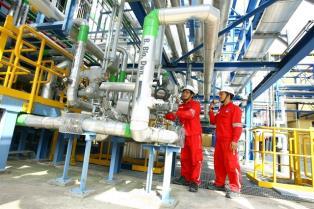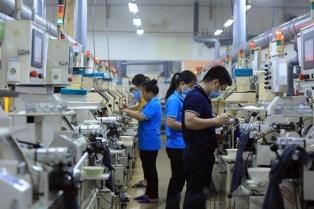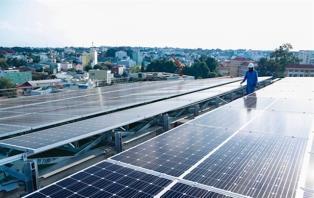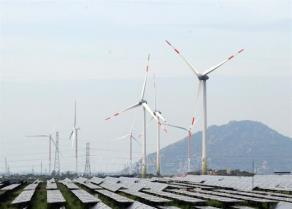Over the past few years, a growing number of companies have ventured into the green economy, producing sustainable goods ranging from biodegradable packaging to organic foods and eco-friendly fashion.
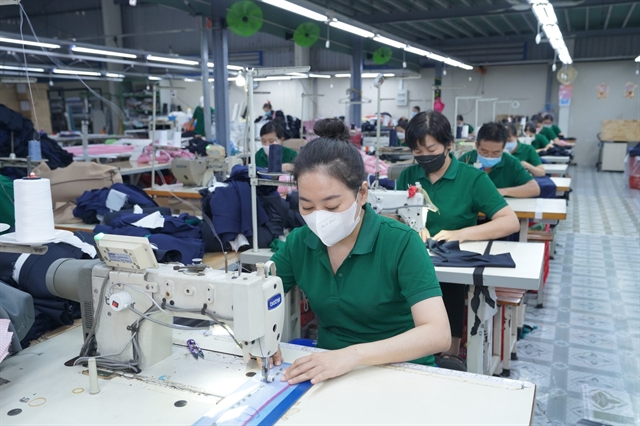
Rising environmental awareness has led to increased consumer interest in eco-friendly products, but green businesses continue to struggle with high production costs, making it difficult to compete on price and scale up within the local market.
Over the past few years, a growing number of companies have ventured into the green economy, producing sustainable goods ranging from biodegradable packaging to organic foods and eco-friendly fashion.
Despite the positive shift, experts say that these products remain significantly more expensive than conventional alternatives, creating a price gap that many Vietnamese consumers are unable or unwilling to bridge.
A typical example is the Hà Nội-based Sông Hồng agricultural cooperative which produces drinking straws made from vegetables. The product is environmentally friendly and designed to protect both consumer and farmer health.
Despite meeting green standards, the cooperative exports primarily to developed markets such as Germany, the UK, Japan and South Korea. In contrast, high price sensitivity continues to limit demand in the domestic market.
Each year, Việt Nam consumes an estimated 5.3 billion plastic straws, roughly 50 times the country's population. Even if just 1-2 per cent of these are improperly disposed of, the environmental consequences could be severe.
Yet, despite the urgent need for alternatives, eco-friendly options remain out of reach for most consumers due to high production costs, making it difficult for green products to gain traction locally, experts said.
The pricing challenge extends beyond straws. Fuwa Biotech, a company producing dishwashing liquid from biological enzymes derived from pineapple peels in Thanh Hóa Province, also struggles to compete in the domestic market.
Although the product boasts environmentally friendly technology and chemical-free safety, a 3.8-litre bottle sells for around VNĐ335,000 (US$13), two to three times the price of conventional dishwashing liquids of the same volume.
Võ Văn Luật of Fuwa Biotech said high prices remained the biggest barrier to expanding their consumer base.
Speaking to saigontimes.vn, Luật emphasised the need for more public forums and seminars to raise awareness about green products and promote sustainable consumption so that eco-friendly businesses can develop sustainably.
In the fashion industry, Faslink, a HCM City-based company committed to sustainable fashion for over 15 years, is also encountering difficulties with pricing its eco-friendly products.
According to Nguyễn Bích Diền, the company's deputy general director, many consumers remain hesitant to purchase products made from recycled or eco-friendly materials, as these typically cost more than conventional fabrics like polyester or cotton.
She said that the company recently introduced a new type of fabric made of pineapple leaf fibres, but high research, development and production costs made it difficult to offer more affordable prices.
Phạm Minh Hương, director of Sustainability & Climate Change Advisory Services at Deloitte Việt Nam, cited survey results indicating that while up to 50 per cent of consumers express interest in green products, fewer than 30 per cent are actually willing to pay more for them.
"This clearly highlights the significant gap between awareness and actual consumer behaviour when it comes to green consumption," Hương told saigontimes.vn.
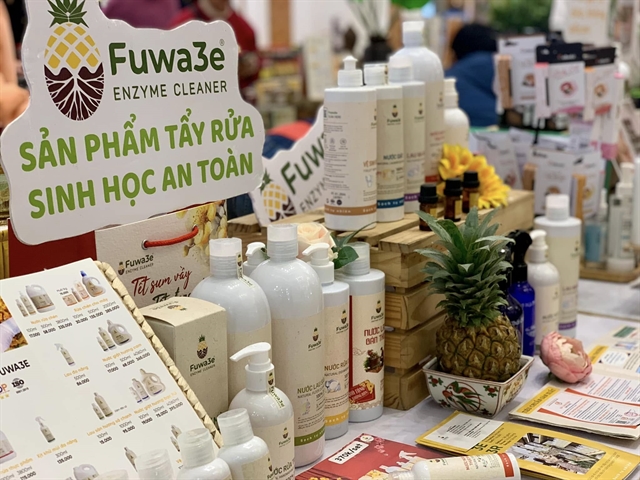
Challenges in investment costs
In an effort to promote the use of environmentally friendly products, businesses are urged to reduce production costs with a goal to make green goods more affordable and accessible to the average consumer.
According to industry insiders, this task is far from easy. Initial investment costs for green manufacturing are often substantial, processes must meet strict environmental standards, and high-quality raw materials are essential. These factors make many companies hesitant to scale up production or commit to large investments.
Echoing this opinion, Tạ Đình Thi, vice chairman of the National Assembly's Committee on Science, Technology and Environment, said high initial costs, stringent production processes, and the need for clean raw materials remained significant obstacles for businesses, despite existing support policies.
As a result, many companies were hesitant to scale up their green initiatives, limiting their efforts to small-scale experiments due to concerns over profitability and market competition, Thi said during a recent forum in Hà Nội.
Meanwhile, Diền from Faslink highlighted the challenges of researching and commercialising innovative recycled materials. She pointed out that many promising ideas, such as producing fabric from banana plant stems or composting mushrooms, remained confined to laboratories or small-scale production due to a lack of suitable technology and collaboration within the green supply chain.
While scientists in this field were making excellent progress, bringing these products to market and scaling up production still faced significant obstacles, Diền noted.
Recycling materials, particularly plastic, continues to face significant challenges due to higher costs. Recycled plastic is approximately 20-30 per cent more expensive than virgin plastic, primarily because of collection, processing expenses and outdated technology.
At Duy Tan Recycling, a company specialising in plastic waste collection and recycling, the cost of recycled plastic is about 30 per cent higher than new plastic, mainly due to high costs in collection, sorting, and processing.
To help lower these costs, it would be important to raise consumer awareness about waste classification at the source, said Lê Viết Đông Hiếu, head of the company’s Sustainable Development Department.
Cleaner and more uniform raw materials would reduce processing expenses, ultimately helping to decrease the final product cost, he told the online newspaper.
Looking ahead, technology innovation is seen as the key to reducing the costs of green products. Experts stress that enterprises must develop affordable technologies suited to their financial capabilities and scale, while expanding access to green technologies.
However, small and medium-sized enterprises face significant challenges in securing state support and resources. They call for targeted policies, from financial incentives to public awareness campaigns, that specifically assist small- and medium-sized enterprises in transitioning to environmentally friendly production. VNS


